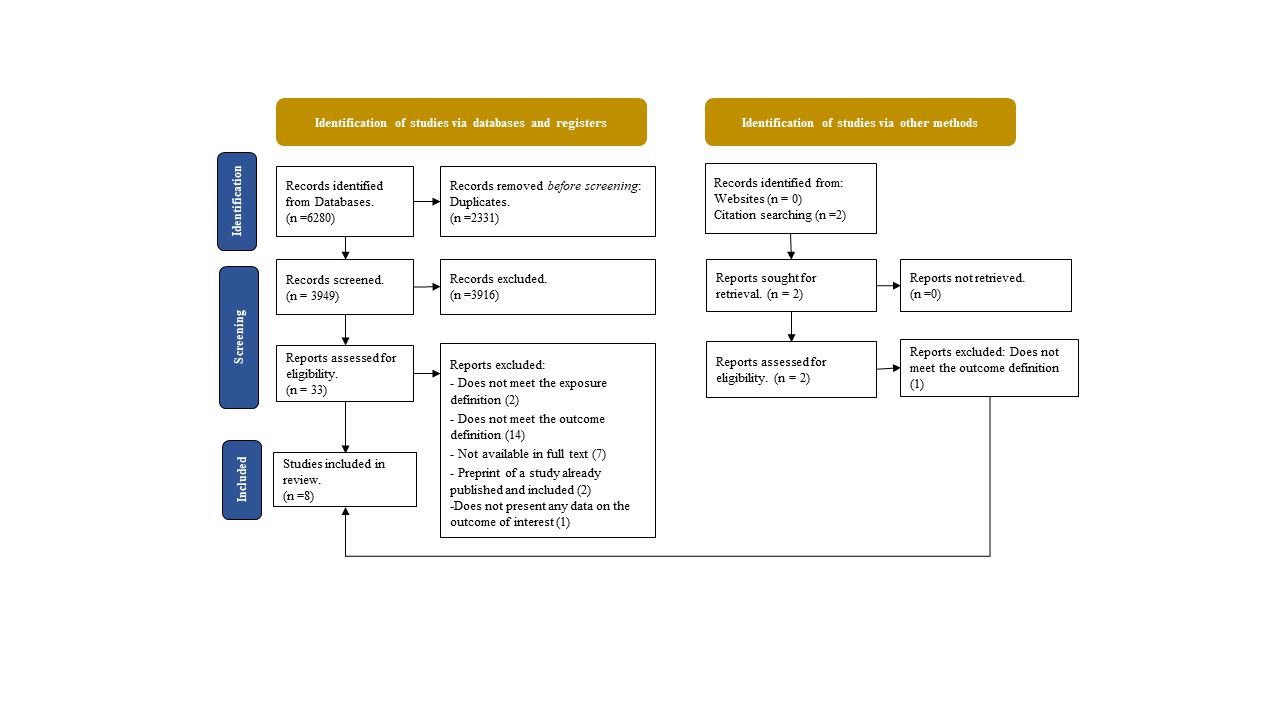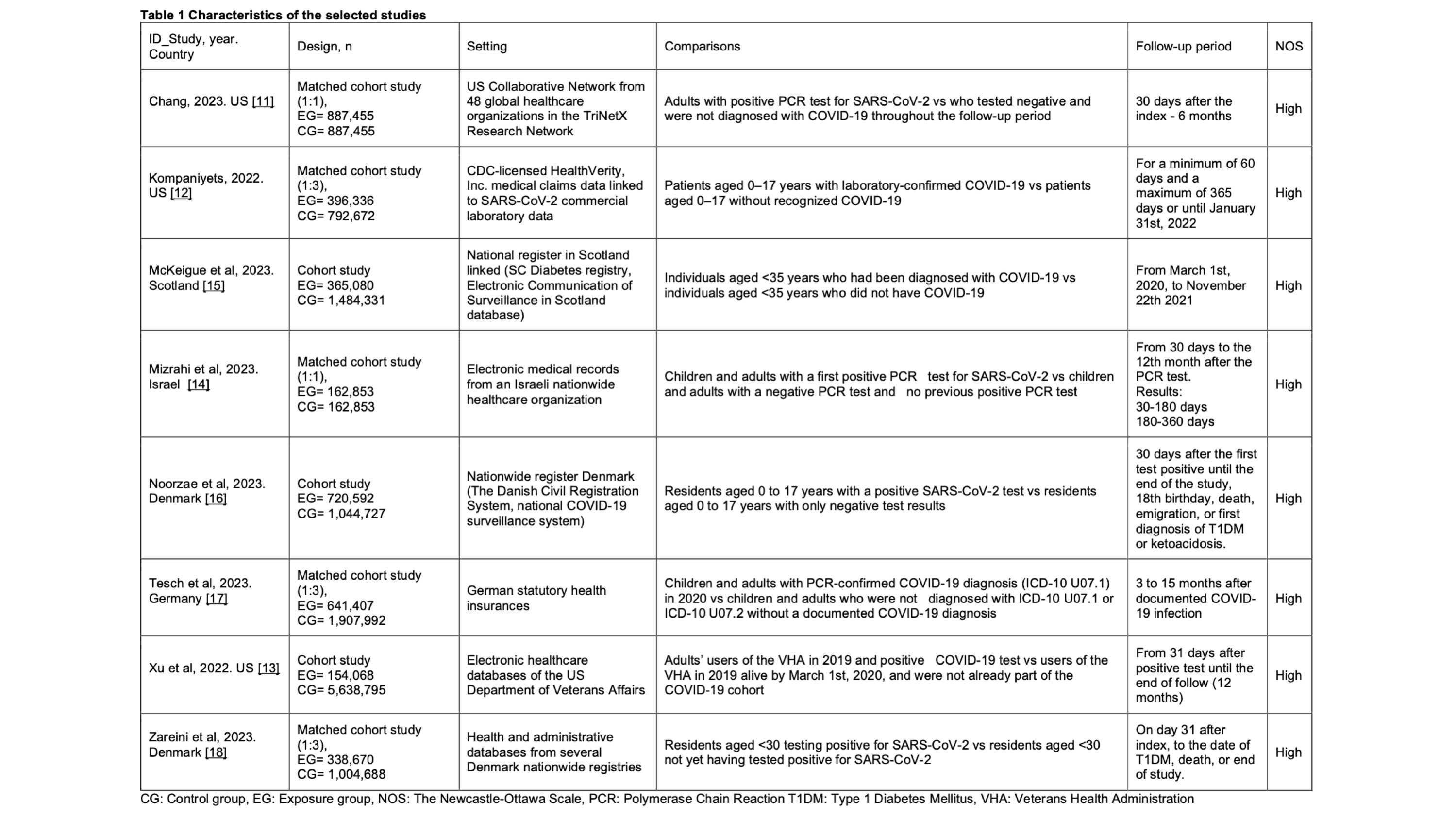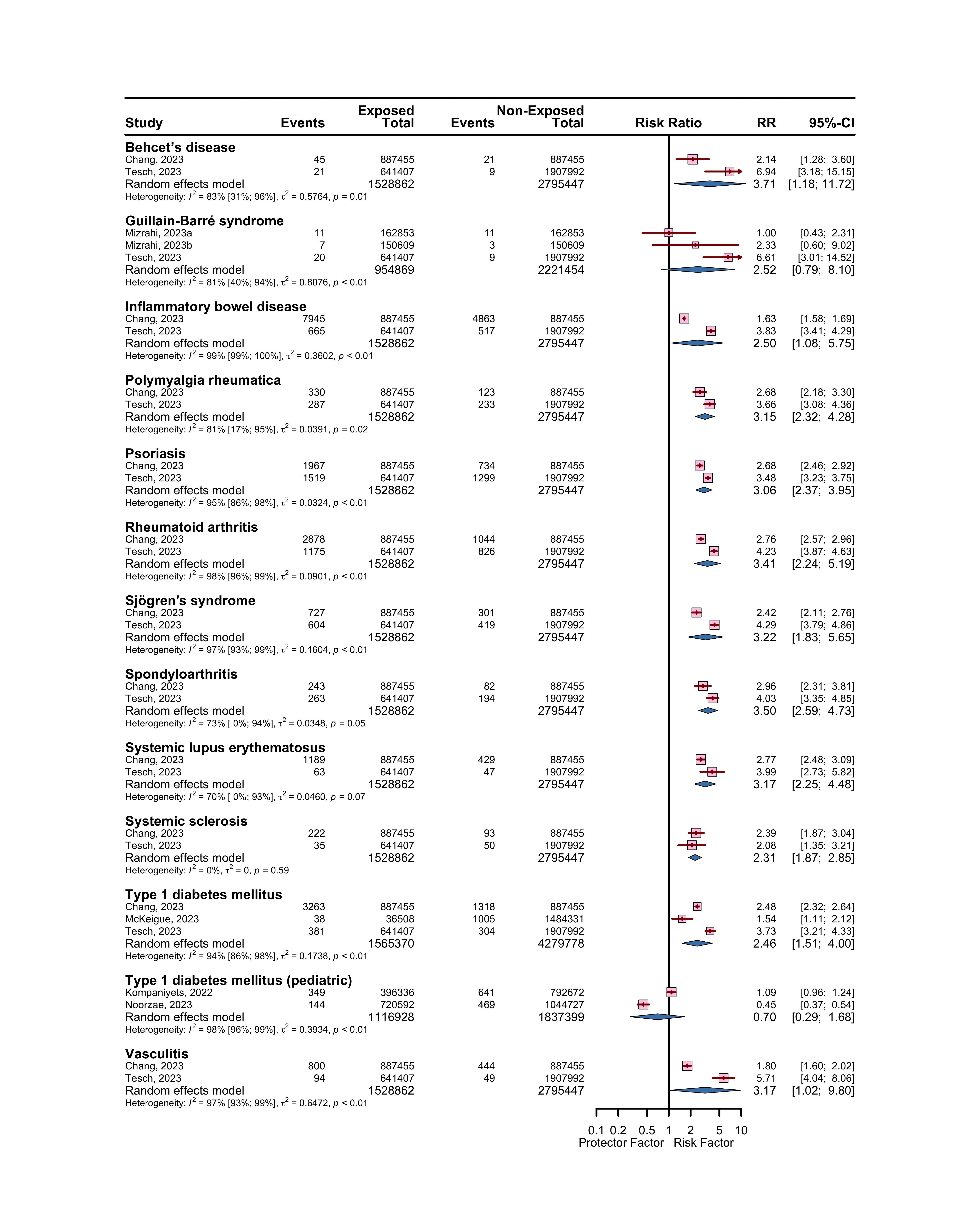Session Information
Session Type: Abstract Session
Session Time: 3:00PM-4:30PM
Background/Purpose: The association between SARS-CoV-2 infection and the new onset of immune-mediated diseases is a topic of interest given the conflicting evidence available. This systematic review and meta-analysis aims to estimate the risk of immune-mediated diseases following SARS-CoV-2 infection.
Methods: Analytical observational studies reporting immune-mediated diseases after confirmed SARS-CoV-2 infection, compared to individuals without infection history, were included. Thirty-nine immune-mediated diseases were defined as outcomes of interest. Studies that included diagnosis within the first 30 days post-infection were excluded. Searches were conducted on June 27th, 2023, in PubMed, EMBASE, CINAHL, Web of Science, and Europe PMC. Two reviewers independently conducted selection, data extraction, and quality assessment. Relative risks were pooled using a random-effects model and the Mantel-Haenszel method. PROSPERO (CRD42023472446).
Results: Eight studies met the eligibility criteria. Meta-analyses were conducted for 12 outcomes of interest using data from six studies. The SARS-CoV-2 exposed group exhibited significantly higher risks for 11 conditions: Behçet’s disease, spondyloarthritis, systemic sclerosis, systemic lupus erythematosus, polymyalgia rheumatica, psoriasis, rheumatoid arthritis, Sjögren’s syndrome, type 1 diabetes, vasculitis, and inflammatory bowel disease. The range of the associations varied between 2·31(95% CI: 1·87-2·85) for systemic sclerosis to 3·71 (95% CI: 1·18-11·72) for Behçet’s disease. Guillain-Barré syndrome and type 1 diabetes (in the pediatric population) showed no evidence of association with SARS-CoV-2 infection.
Conclusion: Our results support a higher risk of developing at least 11 immune-mediated diseases after the acute phase (≥ 30 days) of SARS-CoV-2 infection. As autoimmunity has been identified as a hallmark of post-COVID-19 syndrome, an increase in the frequency of immune-mediated diseases is expected in the coming years. Healthcare professionals and stakeholders should be aware of these findings to prioritize research and public health surveillance. We thank the Colombian Association of Rheumatology (ASOREUMA) for their support. This work was supported by the Ministerio de Ciencia, Tecnología e Innovación de Colombia, MinCiencias, as part of the AGORA Project.(Contract No. 637-2022)
after SARS-CoV_2 infection.
To cite this abstract in AMA style:
Gil A, Barahona-Correa J, Flórez-Suárez J, Fernández-Ávila D, Cucunubá Z. Risk of New Onset of Immune-Mediated Diseases After Sars-Cov-2 Infection: A Systematic Review and Meta-Analysis [abstract]. Arthritis Rheumatol. 2024; 76 (suppl 9). https://acrabstracts.org/abstract/risk-of-new-onset-of-immune-mediated-diseases-after-sars-cov-2-infection-a-systematic-review-and-meta-analysis/. Accessed .« Back to ACR Convergence 2024
ACR Meeting Abstracts - https://acrabstracts.org/abstract/risk-of-new-onset-of-immune-mediated-diseases-after-sars-cov-2-infection-a-systematic-review-and-meta-analysis/



